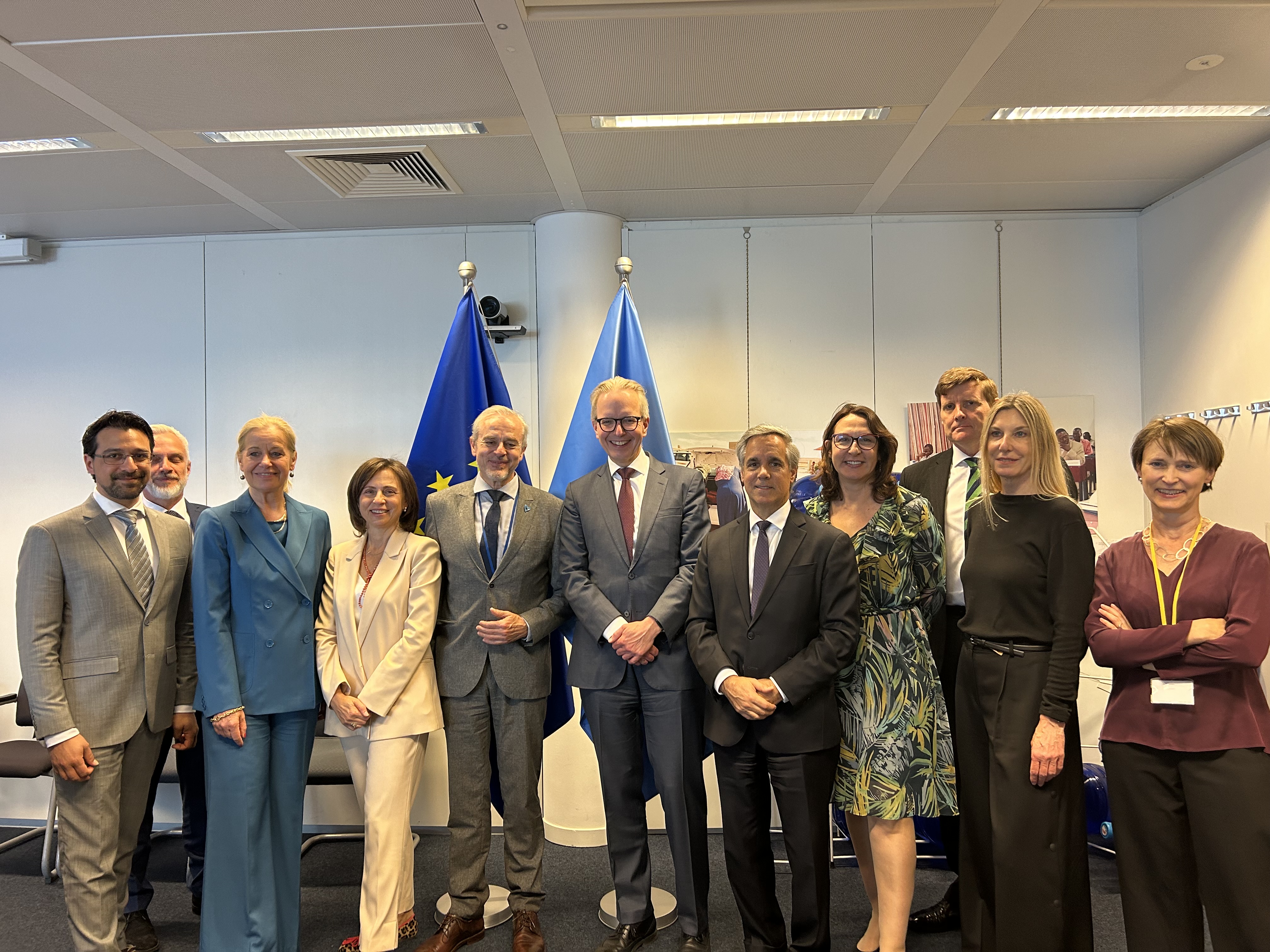23 May 2024, Brussels – In a context of unprecedented challenges to global peace and security, in particular the continued impact of crime and insecurity in Europe and globally, the European Union (EU) and the United Nations Office on Drugs and Crime (UNODC) met to discuss shared priorities and enhance their cooperation. The key areas addressed were migrant smuggling, trafficking in human beings, illicit financial flows, critical infrastructure protection and illegalities associated with critical raw materials’ supply chains. Ukraine’s progress on rule of law reforms and the follow-up to the mid-term review of the 2019 Ministerial Declaration on drugs were also on the agenda.
In recent years, organized crime groups have taken advantage of multiplying conflicts and crises to expand their networks and revenues. For instance, migrant smuggling alone, has been estimated to be a US$ 5-7 billion criminal industry with a very low risk of punishment for the criminals involved. The EU retail drug market – estimated to be worth more than EUR 30 billion annually - makes it a major source of income for organized crime and makes Europe an intersection point for increased violence and other crimes, such as corruption and trafficking in firearms. Moreover, criminals and money launderers have found new ways to hide their criminal proceeds in legitimate businesses, real estate, and luxury goods, including in the EU.
UNODC Director for Policy Analysis and Public Affairs, Mr. Jean-Luc Lemahieu, observed that the world is currently facing a deterioration of the indicators set to fulfil the 2030 Agenda and its Sustainable Development Goals (SDGs). He further stressed “there can be no achievement of SDGs and sustainable economic growth in a world where crime, corruption and polarization keep thriving”.
EEAS Acting Deputy Secretary General Belén Martinez Carbonell, noted that “this is an important year to reinvigorate multilateralism with the adoption of the Pact for the Future expected in September”. She added that “human rights, democracy and the rule of law are universal values that underpin the EU’s multilateral engagement” and recognized the “UNODC’s contribution to enhance criminal justice systems, achieve gender equality and empower youth and future generations”.
Carl Hallergård, the EU Ambassador, underlined that UNODC is a steadfast partner to the EU on the fight against migrant smuggling. He noted that “our cooperation with UNODC is excellent and we welcome that we stepped up our work together to launch concrete actions and activities to support the Global Alliance on migrant smuggling on a truly global scale”. Both sides recognized the excellent and complementary cooperation on preventing and combatting trafficking in human beings and the need to continue this cooperation to address a crime which generates US$236 billion profits annually. Cooperation with UNODC will be stepped up within the Global Alliance to Counter Migration Smuggling. It was also recalled the important role of preventive measures alongside legal pathways in reducing people’s vulnerability to trafficking, as in the case of Ukraine. Cooperation with UNODC in the context of critical raw material related investments risk analysis under the Global Gateway will be further pursued.
The annual event brought together senior staff from UNODC Headquarters and field offices, as well as the European External Action Service (EEAS) and relevant European Commission services, including Directorates-General for Migration and Home Affairs, International Partnerships, and Neighborhood and Enlargement Negotiations. Apart from the EU Ambassador Carl Hallergård, other officials from the EU Delegation to the International Organizations in Vienna also participated in the meeting.
In conclusion, UNODC Director Lemahieu invited the EU to participate at the highest level in upcoming engagements in Vienna, in particular the 12th Session of the Conference of Parties to the UNTOC, to be held on 14-18 October. Lastly, he informed that UNODC will be involved in the “Summit of the Future” on 22-23 September 2024, which will see UN Member States adopt a Pact focusing on meeting existing international commitments as well as responding to emerging challenges and opportunities.
